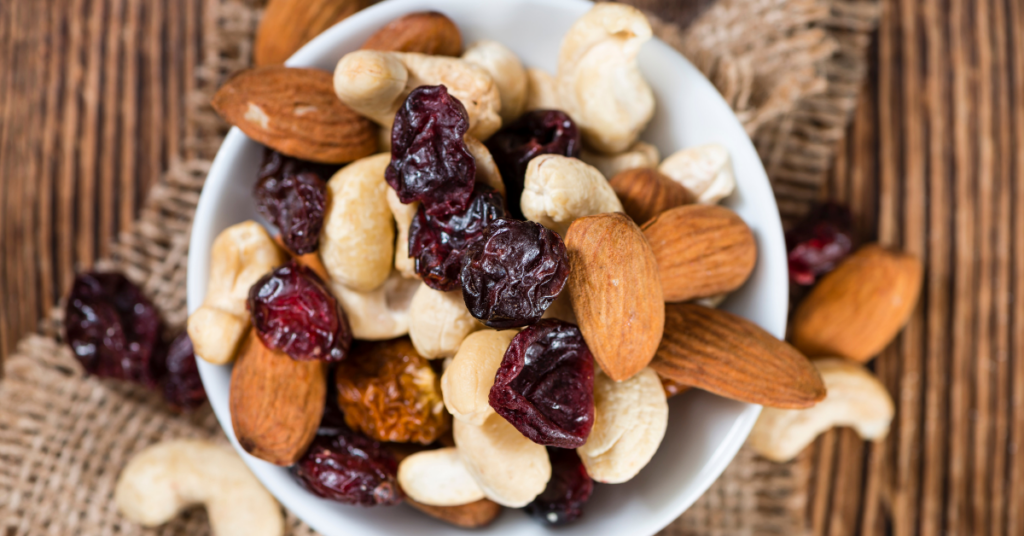
Article at a Glance:
- Building muscle on a plant-based diet is absolutely possible and easier than most people think when you focus on the right fundamentals.
- Get enough high-quality protein, with a variety of plant sources across the day to ensure you’re hitting key amino acids like leucine.
- Support growth with smart timing, a modest calorie surplus, and consistent recovery, because muscle is earned in the hours between workouts.
- Tools like LiveComplete’s NutriMatch protein can help close gaps when needed, without relying on animal products.
There’s a common belief that muscle building and plant-based eating don’t mix. That if you cut out meat, you also cut out your shot at real strength, definition, and growth.
That idea belongs in the past. The truth is, you can absolutely build muscle on a 100% plant-based diet, without compromising nutrition or values. You just need a smarter approach.
This isn’t about chasing perfection. It’s about aligning your habits with your goals and giving your body the inputs it needs to adapt, recover, and grow. Muscle doesn’t discriminate. It responds to stimulus, fuel, and time, and plants can more than deliver.
Let’s walk through what really matters.
Protein: What You Need and Why It Matters
You’ve probably heard the advice to eat more protein. But if you’re plant-based, quality matters just as much as quantity.
Most people can build muscle effectively with around 1 gram of protein per pound of bodyweight per day (e.g., 130 g for a 130-lb person) as long as that protein includes all the essential amino acids your body needs. Not all plant sources meet that standard, which is why choosing the right ones is key.
Foods like soy, quinoa, and buckwheat contain all nine essential amino acids in the right balance to support muscle repair and growth. Others, like beans, grains, or oats, still contribute, but fall short on their own. That’s why variety across the day matters: combining different sources helps you cover all your bases.
Relying on foods like peanut butter or oatmeal as your main protein source can be misleading. They’re calorie-dense, but not rich in the amino acids that drive growth.
To make it work, build your meals around protein sources like tofu, tempeh, lentils, and whole grains. If a food falls short on its own, just make sure it’s part of a broader mix. And when you need backup, LiveComplete’s NutriMatch gives you a full spectrum of essential amino acids in a single, easy scoop, no second-guessing required.
Leucine: The Muscle-Growth Switch
Leucine is one of the three branched-chain amino acids (BCAAs) and plays a central role in muscle growth. Think of it as the ignition switch for muscle protein synthesis — the process your body uses to repair and build new muscle tissue in response to training and nutrition.
After exercise, leucine levels drop significantly, and without enough of it in a meal, your body may not trigger the muscle-building process, even if you’ve eaten enough total protein. Research suggests that for optimal muscle growth, meals should contain at least 2.5 grams of leucine, ideally consumed within two hours post-workout.
This is where things get tricky on a plant-based diet. Leucine isn’t as concentrated in plant foods as it is in animal proteins, which makes hitting that threshold more difficult without careful planning.
To help, here’s a reference table showing how many calories and servings of various plant-based foods it takes to hit the ~2.5g leucine threshold:
Leucine-Rich Plant-Based Foods (~2.5g leucine)
| Food | Calories to reach ~2.5g leucine | Serving Size |
| Lupini | 252 | 1.3 cups |
| Natto | 350 | 1 cup |
| Edamame | 400 | 2.2 cups |
| Tempeh | 401 | 7.4 oz |
| Kidney Beans | 431 | 1.5 cups |
| Lentils | 445 | 2 cups |
| Oat Bran | 448 | 2 cups |
| Black Beans | 466 | 2.1 cups |
| Pinto Beans | 476 | 2 cups |
| Tofu | 516 | 18 oz |
| Baked Beans | 580 | 2.4 cups |
| Corn | 585 | 5.3 cups |
Hitting your leucine target from whole foods alone is possible, but it takes volume and variety. For convenience and confidence, especially post-workout, using a plant-based protein powder that delivers a full 2.5 grams of leucine can help ensure you’re giving your body what it needs to grow.
Nutrients: Why Micronutrients Matter for Muscle
Muscle is expensive, metabolically speaking. Your body doesn’t build it just because you ask nicely. It needs resources. And that means more than just calories and protein.
When you’re fully plant-based, there are some key nutrients you’ll want to be extra aware of, not because they directly build muscle, but because they support the processes that allow muscle to grow and recover effectively:
- Vitamin B12 – Not found in plant foods, so supplementation or fortified foods are recommended. It plays a key role in red blood cell formation and energy metabolism, both of which are essential for performance and recovery.
- Iron – Critical for oxygen transport in the blood. Low iron levels can reduce endurance and impair muscle function. Plant-based (non-heme) iron is harder to absorb, so pair it with vitamin C and monitor levels, especially if you’re menstruating or training hard.
- Zinc – Involved in hormone production (including testosterone) and tissue repair. Found in legumes, seeds, and grains, but absorption is often limited on a plant-based diet.
- Creatine – Helps recycle ATP during high-intensity training, directly improving strength and power output. Normally found in animal products, but vegan creatine monohydrate is just as effective and a game-changer for performance.
- Omega-3s – Support recovery, reduce inflammation, and may help preserve lean mass. Consider algae oil (a direct source of EPA and DHA) if you’re not eating a lot of ALA-rich foods like flax or chia (which convert to EPA and DHA, but only in small amounts).
Building muscle is like building a house. Without the raw materials, you can’t complete the project. These nutrients help lay the foundation so your training and protein intake actually translate to progress.
Timing, Training, and the Muscle-Building Signal
Muscle growth doesn’t happen during your workouts; it happens afterward, when your body responds to the stress by rebuilding stronger. That response is triggered by progressive overload: gradually challenging your muscles with heavier loads, more reps, or more volume over time.
Training is just the signal, triggering the first step in a longer process. Growth only happens if your body has the fuel and resources to respond.
That’s where timing matters. Hitting your daily protein target is essential, but so is spreading your intake across the day, with multiple meals that include a complete amino acid profile and enough leucine to trigger muscle protein synthesis. Each time you hit that threshold, you give your body another opportunity to build.
Post-workout is the most important window. Focus your largest, most complete meal after training to support recovery and maximize muscle-building potential. On rest days, space meals evenly to maintain a steady supply of amino acids and allow your body to repair and grow.
Recovery and consistency matter just as much as the training itself. The signal gets you started, and what follows determines how far you go.
Calories: The Missing Piece Most People Overlook
Hitting your protein target is essential, but protein alone doesn’t build muscle. As we’ve talked about, muscle growth is a metabolically expensive process, and your body won’t prioritize it unless you’re consistently eating in a caloric surplus.
This doesn’t mean overeating or “bulking” aggressively. For most people, a surplus of 150–300 calories per day above maintenance is enough. Your maintenance calories refer to the number of calories it takes to maintain your current body weight without gaining or losing. If your goal is to build muscle — which means adding tissue — you’ll need to consistently eat more than this amount to support that process.
And while that might sound simple, the way you structure your diet plays a huge role. If you’re getting all your protein from whole plant foods, you’ll likely hit your calorie needs just by trying to meet your protein target. But if you’re relying heavily on protein powder or eating very lean, low-calorie meals, it’s surprisingly easy to come up short, and that can limit your results.
To keep things simple:
- Prioritize whole foods that provide both calories and protein, especially those with a more comprehensive amino acid profile like tofu, tempeh, and quinoa.
- Focus on leucine-rich sources across the day. If a food isn’t complete on its own, include a variety to fill the gaps.
- Avoid relying on protein powders to meet your full daily target. Use them as a supplement — ideally, no more than 25% of your intake. With LiveComplete’s NutriMatch, that’s about one scoop a day. This ensures you get most of your protein from whole foods, which provide essential nutrients like fiber and vitamins for overall health.
- Monitor your progress by tracking weight and strength. A gain of 1-2 pounds per month typically reflects a sustainable surplus.
- If gains slow, add an extra snack (like a handful of nuts) or swap in more complete proteins like tofu or NutriMatch.
Muscle isn’t just made of protein, it’s built with energy. Give your body enough, and it will grow.
LiveComplete Takeaways
- Building muscle on a plant-based diet is completely possible with the right nutritional strategy.
- Variety, complete amino acids, and consistent recovery are essential for results.
- A modest calorie surplus and strategic use of protein shakes can help fill the gaps.
Building muscle on a plant-based diet isn’t about limitations; it’s about precision. Focus on foods that match your goals, give your body what it needs to recover, and stay consistent. Your muscles don’t care where the protein came from, they care that it was complete, timed well, and consistently delivered.
Strong, capable, and powered by plants? That’s not a compromise, that’s a flex.
And if you need a boost, LiveComplete’s NutriMatch gives you everything you need to hit your protein goals with complete amino acids and unmatched digestibility.
Sources:
- Morton, Robert W et al. “A systematic review, meta-analysis and meta-regression of the effect of protein supplementation on resistance training-induced gains in muscle mass and strength in healthy adults.” British journal of sports medicine vol. 52,6 (2018): 376-384. doi:10.1136/bjsports-2017-097608
- Mero, A. “Leucine supplementation and intensive training.” Sports medicine (Auckland, N.Z.) vol. 27,6 (1999): 347-58. doi:10.2165/00007256-199927060-00001
- Allen, Lindsay H. “Causes of vitamin B12 and folate deficiency.” Food and nutrition bulletin vol. 29,2 Suppl (2008): S20-34; discussion S35-7. doi:10.1177/15648265080292S105



